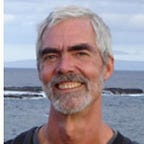My Generation: A Memoir of the Baby Boom
Nowick Gray’s self-exile from East Coast suburbia spirals through campus rebellion, California dreaming, a testy Canadian romance, and an Inuit village preparing for its own revolution. After forty-five addresses, the narrator trades freedom for a self-chosen home, a land co-op in backwoods British Columbia, where the next generation can begin.
What if the system broke down, and you had to find a way to live?
What if you wanted to find a better way, before it all went down?
What if a whole generation faced these questions for the first time?
That was My Generation.
Like so many of the Baby Boom, I entered the world sequestered in incubator and crib; was moved by corporate edict from city to city; molded by a society beholden to TV and the next consumer trend. Encouraged by cultural allies, inspired by mentors; graced in equal measure by handshakes with fame (Gillespie, Salinger, Ginsberg) and brushes with death (cocaine, cougar, truck crash), I was nurtured and guided to find my own way to a more fulfilling future.
My first break from mainstream conditioning came in 1965 with my exit from the public school system and exposure to the alternative values of Quakers. Still, like the rest of the silent majority, on hearing the news of a protest suicide, or the massacre of women and children in a faraway village, I turned away to avoid sinking into depths of anger or despair. Was this a cultural disease, not to feel, but to change the channel, or use retail therapy to cope? To use whatever small pleasure or spectacle was close at hand to numb the senses and dull the pain of the nightmare underside of the American Dream?
Meanwhile, I could hear new voices of my generation — the Who, Muhammed Ali, Martin Luther King, Jr., Hendrix, with a new anthem to sing: Live for today. At Dartmouth College, we in the Class of ’72 saw ourselves as a vanguard, poised at the fulcrum of a giant, historical transition. The storming of the Bastille, by French university students; the hippie explosion of Woodstock, and the urban race riots; the backlash election of Nixon, and his escalation of the Vietnam War; the old order was surely in its death throes and would pass away into the dustbin of history, by the time we graduated in three years.
The campus revolution indeed came to a head after the Kent State shootings of 1970; but the Vietnam War raged on. Taking refuge in literature and nature, drugs, sex and rock ‘n roll, my peers and I tried to envision escape to a better world. Some were heading to the hills, experimenting with communal lifestyles and small-scale farming. Others gave up the ideals of a new society and reverted to the old paradigm, grad school, business and law, marriage and a house in the suburbs.
I plotted my own course of freedom. A naïve flight from the halls of ivy to a California dream yielded a merry-go-round of minimum-wage jobs: parking valet, gas jockey, baggage handler. These mundane and mindless revolving doors gave me the blue collar blues; spun me, in time, into that sideshow called the arts; and eventually drove me back to the cloister of academics.
Back in the womb of university, I skirted the problem of survival by distancing myself from it. Nature, my constant muse, became an abstraction, an object of study and analysis. Soothed by the music of language and its mysterious magic, I would play my part in a generational shift from real work in the physical world, to a linguistic marketplace, destined for a yet more virtual future. At last I saw the dead end and danced out of it, saved by a shimmer of Northern Lights.
The end of that new road was the roadless Far North, where, as a teacher, I could play a novel version of the role of Outsider, trading literacy for the survival skills of the Inuit hunters. At least I found good company there with my fellow misfits from the South, caught in the colonial dilemma of assimilating a people whose timeless culture we admired more than our own. Our ensuing adventures, passing into legend as “the Golden Days,” included a four-month exile during the heat of the Bill 101 crisis in 1977, when the Inuit staged a nonviolent counter-revolution to the language coup of the Parti Quebecois.
Finding a partner to share a more sustainable vision of rural self-sufficiency gave me also a marriage ticket to stay in Canada. Inspired during the long winter nights of the Arctic, from our summers spent in a utopian community in backwoods BC, we decided finally to commit to the “simple life” of self-sufficiency, building a homestead from raw land bordering wilderness. There my stubborn ideals would be put to the test of nature, my chronic freedom traded for a self-chosen home.
At the age of thirty — the very age of adulthood defined by my generation — I followed the dream of a life on the land in new and ancient territory: my country. There in the Kootenay mountains of southeast British Columbia, the real work could begin. I could recreate myself — mountain man and homesteader, peace crusader and new father — and begin a new generation.
